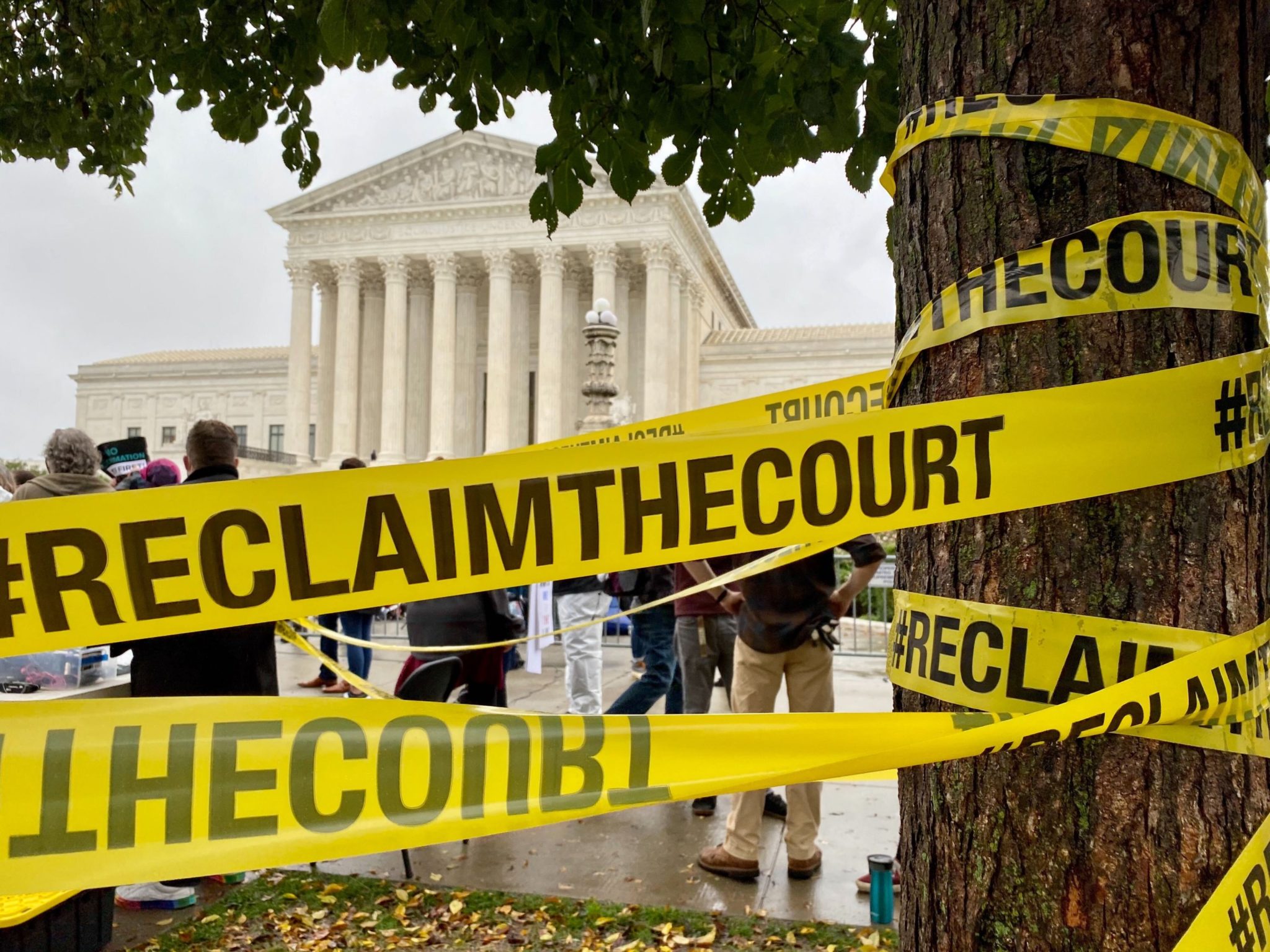A little more than two weeks ago, Amy Coney Barrett, a resident of South Bend, Indiana, came to Washington for a celebration. Accompanying her were her husband and seven children. Upon arriving via non-commercial aircraft, the Barretts traveled across town to a large public building in DC’s Ward Two, where they attended indoor and outdoor gatherings. Photographs of the event indicate that Barrett, like many of the other attendees, was without a mask during the party.
What are Americans to make of this itinerary? District of Columbia rules currently require visitors from 31 states—including Indiana—to quarantine for two weeks upon arrival in the capital. They currently require people to wear masks outside of their homes when likely to come into non-fleeting contact with anyone. And they currently forbid gatherings of more than 50 people. People who violate the mask order can be subject to citations and fines of $1000.
The strictures are designed to keep DC residents safe from a pandemic that has killed more than 210,000 people in the US. They have, most likely, helped the District avoid some of the catastrophic spikes that occurred elsewhere in the country. They’ve also been intensely frustrating to locals, who have cancelled weddings, missed funerals, closed in-person schools, and gone without visits to friends and family.
Had Barrett been doing anything other than coming to the White House to be introduced as Donald Trump’s nominee for the Supreme Court, the legal verdict on her visit would be pretty clear: She violated a bunch of safety guidelines. In a small way, she made the city, and the country, a bit less safe at a time when thousands are dying. For Washingtonians, she may have made it more likely that our kids will have to wait longer to go back to school and our businesses will have to wait longer to re-open.
In Barrett’s case, there’s a bit more gray: The White House, where she was feted at an event that turned out to be a superspreader gathering, is not subject to DC regulations (though the streets you traverse in order to get there may be). The city quarantine guidelines also have some rather fuzzy language permitting essential travel (though even if you view Barrett’s announcement party—as opposed to the hearings—as essential business, it’s hard to say that having her family along for the fiesta counts). A reasonable person might have assumed that the White House is the safest place in the country. Most of the outrage about the Barrett introduction party has focused, rightly, on the host of the event, and on some of the more reckless guests.
Still, I hope that someone asks her about this during her truncated confirmation hearings. There’s been a lot of tut-tutting about the irony of an event celebrating the victory of pro-life politics having recklessly abetted the spread of a deadly disease. But there’s also the matter of hearings full of praise for strict adherence to the letter of the Constitution—while weighing the nomination of someone who participated in an event premised on the avoidance of minor regulatory obligations.
The Democrats who oppose Barrett appear to have settled on a strategy that narrows the focus to the pending legal case against the Affordable Care Act. The country is focused on Barrett’s implications for the future of abortion rights. That’s all appropriate, and, like her or not, much more important than puny NIMBY questions about whether the would-be justice was in violation of the letter or spirit of a couple of emergency regs promulgated by the mayor of a mid-sized city.
But ask the NIMBY question anyway. It may even be good politics. The Constitutional arcana involved in a decision about the ACA may be hard to grasp. The issue of whether a VIP has to follow the same rules as little people is easier.



















